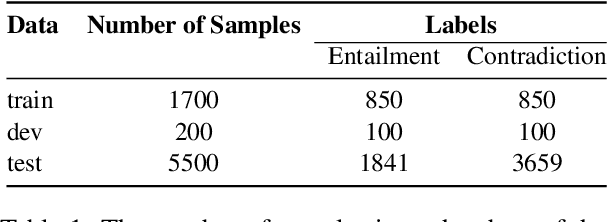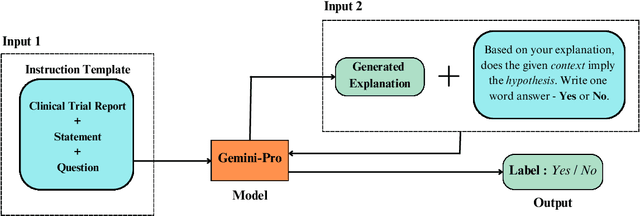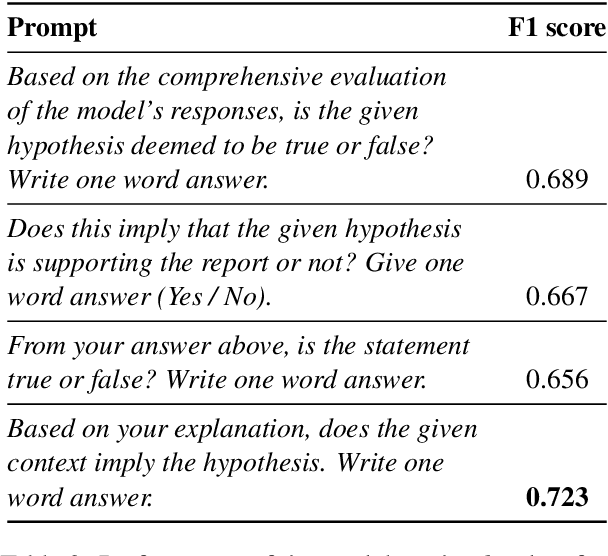Shreyasi Mandal
IITK at SemEval-2024 Task 2: Exploring the Capabilities of LLMs for Safe Biomedical Natural Language Inference for Clinical Trials
Apr 06, 2024



Abstract:Large Language models (LLMs) have demonstrated state-of-the-art performance in various natural language processing (NLP) tasks across multiple domains, yet they are prone to shortcut learning and factual inconsistencies. This research investigates LLMs' robustness, consistency, and faithful reasoning when performing Natural Language Inference (NLI) on breast cancer Clinical Trial Reports (CTRs) in the context of SemEval 2024 Task 2: Safe Biomedical Natural Language Inference for Clinical Trials. We examine the reasoning capabilities of LLMs and their adeptness at logical problem-solving. A comparative analysis is conducted on pre-trained language models (PLMs), GPT-3.5, and Gemini Pro under zero-shot settings using Retrieval-Augmented Generation (RAG) framework, integrating various reasoning chains. The evaluation yields an F1 score of 0.69, consistency of 0.71, and a faithfulness score of 0.90 on the test dataset.
Defense Against Adversarial Attacks using Convolutional Auto-Encoders
Dec 06, 2023Abstract:Deep learning models, while achieving state-of-the-art performance on many tasks, are susceptible to adversarial attacks that exploit inherent vulnerabilities in their architectures. Adversarial attacks manipulate the input data with imperceptible perturbations, causing the model to misclassify the data or produce erroneous outputs. This work is based on enhancing the robustness of targeted classifier models against adversarial attacks. To achieve this, an convolutional autoencoder-based approach is employed that effectively counters adversarial perturbations introduced to the input images. By generating images closely resembling the input images, the proposed methodology aims to restore the model's accuracy.
 Add to Chrome
Add to Chrome Add to Firefox
Add to Firefox Add to Edge
Add to Edge